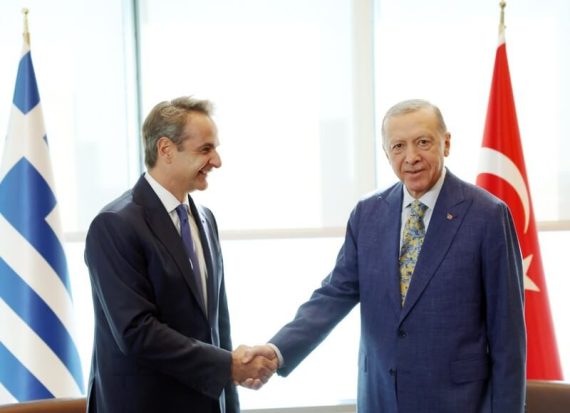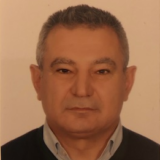T
urkish-Greek relations, which navigated a strained course after 2016 with harsh discourse and even frictions on the ground, have ushered in a new era with the earthquakes disaster that occurred in Turkey on February 6, 2023. Greece was among the first countries to offer help and dispatch search and rescue teams to Turkey.
Shortly after the disaster, on February 12, Greek Foreign Minister Nikos Dendias came to Turkey and paid a visit to the earthquake-hit region alongside his Turkish counterpart Mevlüt Çavuşoğlu. With this visit, the diplomatic relations, which were suspended completely during the era of frayed relations, were somewhat revitalized.
The official statements given by both sides in the course of the ensuing months became moderate. In addition, Turkish President Erdoğan and Greek Prime Minister Mitsotakis held a meeting in the Lithuanian capital, Vilnius, on the margins of the NATO Summit. The meeting, which involved the participation of the foreign ministers as well, was stated to be held in “good atmosphere,” and the statements on the heels of the meeting included expressions such as “both sides agreed to build on this positive momentum and activate the multiple channels of communication between the two countries in the upcoming period.”
They also agreed that the next meeting of the High-Level Cooperation Council at the leaders or the ministerial level be held in Thessaloniki in autumn. It was indicated that the leaders tasked their foreign ministers with “guiding the processes and reporting on the progress.”
The meeting between Foreign Ministers Fidan and Gerapetritis
Another crucial step of the abovementioned positive process was the visit of the Greek foreign minister to Turkey on September 5, 2023. During the visit, Giorgos Gerapetritis held a meeting with his counterpart Hakan Fidan, both of whom had newly assumed their positions. The statements of the foreign ministers during the press release following their meeting, offered hints of a deepening of the dialogue between the two parties.
First and foremost, Foreign Minister Fidan proclaimed the inauguration of a new era. “We have entered a new and positive era in our relations with Greece,” he stated. He said that the relations were exhaustively reviewed in Vilnius in line with the directives of the countries’ leaders and that they have been working on a road map for the forthcoming periods. He went on to add that the “Political Consultations and Joint Action Plan” meetings at the deputy foreign ministerial level would be held in Greece in October, and emphasized that the meetings of “Confidence-Building Measures” and exploratory talks were also on the agenda.
Another important matter, expressed in Vilnius, was that the decision to hold the fifth meeting of the High-Level Cooperation Council under the chairmanship of their leaders in Thessaloniki before the end of the year. This statement revealed that both parties are determined to resume relations at the highest level. In addition, the two leaders would meet at the inaugural meetings of the UN General Assembly in mid-September.
Fidan affirmed that they were pleased with the Joint Action Plan, and that the deputy foreign ministers would hold a meeting in Greece in December during which they would also discuss the progress made. The steps to be taken on the commercial matters would also be discussed.
Another remarkable point, which is equally important as the concrete steps in the dialogue process, is Turkey’s vigorous will to uphold the process. Minister Fidan indicated that revitalization of the channels of dialogue and the high-level contacts were a positive step, and that Turkey retains the will to maintain this by reaffirming that Turkey is ready to carry on with the process unconditionally and to develop relations in all aspects on the basis of common interests. Turkey has always espoused this approach and Minister Fidan reiterated that the problems between the two neighbors and allies can only be resolved through constructive dialogue.
Beyond the clear-cut determination regarding the dialogue process, it is important to clarify the developments that took place or are likely to take place on the settlement of the problems between the two countries. Explaining that the problems regarding the Aegean and the Eastern Mediterranean were also comprehensively assessed, Fidan revealed that a tangible dialogue has begun for the settlement of the problems. He highlighted that these problems had been addressed in the past during the consultative talks, and that they have been in talks to restart the process. More importantly, Fidan affirmed that they are in consensus about “introducing novel ways to resolve the problems.” He also stressed that Turkey has always defended the principle of equitable sharing in the context of the Eastern Mediterranean.
Nearly all important matters were, thus, discussed during the Fidan-Gerapetritis meeting. While demanding more cooperation on the fight against the PKK, FETÖ, and the DHKP-C terrorist organizations and irregular migration, the Turkish side also raised the issue of the need to resolve the problems facing the Muslim Turks in Western Thrace. Addressing regional problems and the questions of Ukraine, Russia, and Syria, and EU-Turkey relations, Turkey stressed that the bilateral problems can be settled “on the basis of mutual rights and interests as well as respect to international law.”
Gerapetritis’s statements indicated that the Greek approach is quite similar to the Turkish one. Rather than discussing the specific issues that were addressed in the meeting, Gerapetritis underscored the need to keep the lines of communication open and stressed the principles to form the basis of the settlement of the problems. Underlining that attempts to commence and maintain dialogue would contribute to the development of bilateral relations, he indicated that this is of paramount importance for the tranquility of the region. In this vein, he explained that the commitment which was assumed was a historical one and that this assigned the task of “maintaining good neighborly relations, observing the mutual interests of the people, and taking initiatives within the framework of a sustainable peace” to both countries.
Athens’s move to express that it is in favor of dialogue with such unambiguous and conclusive terms indicates that dialogue is an irrevocable process for Greece, which is promising.
The emphasis on building new and positive approaches by setting aside mutual biases, and even overcoming the animosity between the two countries that stems from historical events, constitutes an integral part of good relations and the settlement of bilateral issues. Reaching a reconciliation by making mutual compromises requires the alleviation—and if possible the elimination—of biases and animosity.
In this respect, a few points that Gerapetritis touched upon in his speech are worth noting. He conceded that the grief of the past cannot be erased with a stroke of a pen, but underlined that they were compelled to contain crises-prone disagreements and stereotyped understandings by investing more in sincerity and mutual understanding. Stating that it is difficult to harbor hopes to patch up all problems in the near future as their settlement requires a milder environment, Gerapetritis stressed that it is better to focus on the unifying factors and to stay away from what has set the two countries apart.
Emphasizing the fact that the dialogue is a three-pronged process, Gerapetritis explained that the first stage would be the “level of political talks,” the second was the “Confidence-Building Measures” negotiations soon to be started, and the third the aides agree that the positive agenda ought to be chaired by Deputy Minister of Foreign Affairs of Greece Konstantinos Fragkogiannis,. The last stage would cover areas such as trade, maritime sector, communication, and climate and environmental problems.
Athens does not appear to have had a change of heart with regard to its attitude towards Ankara-Brussels relations and Turkey’s EU membership bid. As Gerapetritis expounded, Greece has long bolstered Turkey’s EU orientation but has not backed away from referring to the preconditions (which extend beyond the membership criteria) that vex Ankara. By the same token, Gerapetritis was not unaware of politically driven and unilateral preconditions to Ankara’s membership when he suggested during a press conference in the wake of the meeting that Greece backed Turkey’s bid provided that the latter fulfill the EU criteria.
Leaders’ meeting in New York
President Erdoğan and Prime Minister Mitsotakis met at the Turkish House in New York on September 20 as part of their presence in the city to participate in UN General Assembly meetings. This was their first meeting since their meeting on the sidelines of the NATO Summit in Vilnius. There were no expectations that the leaders would patch any specific problems, but the meeting held paramount significance in terms of laying the ground for the rekindling of bilateral relations that have long been strained and recently signaled hints of a thaw.
In the official declarations, the two leaders reaffirmed their resolve to preserve the positive climate in the bilateral relations. Furthermore, they endorsed the road map that was decided by the foreign ministers during the meeting held in Ankara on September 5. Moving beyond that, they reconfirmed the premeditated timetable that was shared with the public.
The leaders’ reaffirmation of these points emphasizes the positive climate in the strongest terms, and being open to positive developments and laying the groundwork for them to occur.
Accordingly, the deputy foreign ministers will meet in Athens in mid-October for political dialogue and a positive agenda, followed by “Confidence-Building Measures” meetings in November in Athens and in Thessaloniki on December 7. Also, a high-level meeting of the Turkey-Greece Cooperation Council will be organized. This will be the last meeting, which means that the heads of state and government will meet to discuss bilateral relations and even problem solving.
Recommended
After the leaders’ meeting in New York, it is clear from the statements that the consultations covered important regional issues including natural disasters and civil defense cooperation, the climate crisis, and illegal migration. The two countries agreed to address and cooperate on migration issues, recognizing that this is a common challenge for both.
Other issues that require to be discussed include, the establishment of territorial waters at six nautical miles and, contrary to Greece’s claims, not only the delimitation of the continental shelf in the Aegean Sea; the national airspace, which Greece applies at ten miles when it should be six miles; the determination of sovereignty over certain islets and rocks in the Aegean Sea; the arming of demilitarized islands by Greece in the Aegean; the definition of the boundaries and legal status of Flight Information Regions (FIRs) and search and rescue (SAR) zones; the definition of the continental shelf in the Eastern Mediterranean; and the recognition of the rights of the Muslim Turkish minority in Western Thrace.
The most reasonable expectation in the medium term will be to develop opportunities for cooperation by ensuring the continuation of relations in a moderate environment. In this sense, the implementation of the agreed road map is of great importance.





